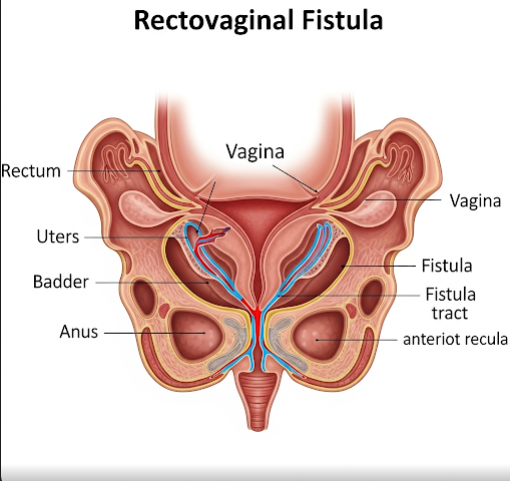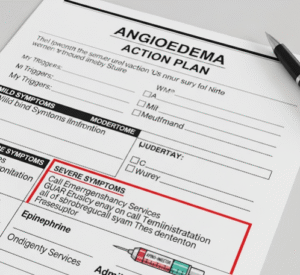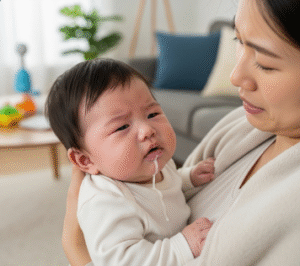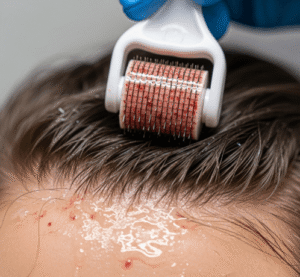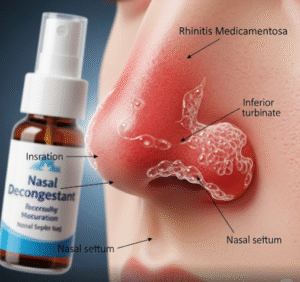Overview
A rectovaginal fistula is an abnormal, unwanted connection between the rectum and the vagina, causing fecal matter or gas to pass through the vagina. This condition leads to significant discomfort, infection risk, and social distress. In Korea, colorectal surgeons and gynecologists work together to provide precise diagnosis and effective surgical treatment to restore normal function and quality of life.
What is Rectovaginal Fistula?
A rectovaginal fistula is a pathological passage that develops between the rectum and vagina, resulting in involuntary leakage of stool or gas from the rectum into the vaginal canal. It can be congenital or acquired, commonly due to trauma, surgery, infection, or inflammatory bowel disease.
Symptoms
- Passage of gas or stool through the vagina
- Recurrent vaginal infections or irritation
- Foul-smelling vaginal discharge
- Pain or discomfort in the vaginal or rectal area
- Recurrent urinary tract infections
Causes
- Obstetric injury during childbirth (especially prolonged or complicated labor)
- Surgical complications from pelvic or colorectal surgeries
- Inflammatory bowel diseases such as Crohn’s disease
- Radiation therapy damage
- Trauma or infections in the pelvic area
Risk Factors
- Difficult vaginal deliveries or use of forceps
- History of pelvic radiation or surgeries
- Chronic inflammatory bowel conditions
- Pelvic infections or abscesses
- Older age and weakened tissue healing
Complications
- Chronic infections and abscess formation
- Social and psychological distress due to incontinence
- Sexual dysfunction
- Impaired quality of life and self-esteem
Prevention
- Skilled obstetric care to minimize childbirth trauma
- Proper management of inflammatory bowel diseases
- Careful surgical techniques to avoid tissue injury
- Early treatment of pelvic infections
Treatment Options in Korea
Diagnosis
Diagnosis involves physical examination, imaging studies such as MRI or endoanal ultrasound, and sometimes contrast studies to delineate the fistula tract.
Medical Treatments
- Antibiotics to control infections
- Nutritional support to optimize healing
- Medical management of underlying inflammatory bowel disease
Surgical or Advanced Therapies
- Surgical repair is the mainstay treatment, with techniques tailored to fistula size and location
- Minimally invasive procedures including flap repair or fistula plugs
- Colostomy may be needed temporarily in complex cases to divert fecal flow
Rehabilitation and Support
- Postoperative pelvic floor rehabilitation
- Psychological counseling for coping with symptoms
- Long-term follow-up to monitor healing and prevent recurrence

